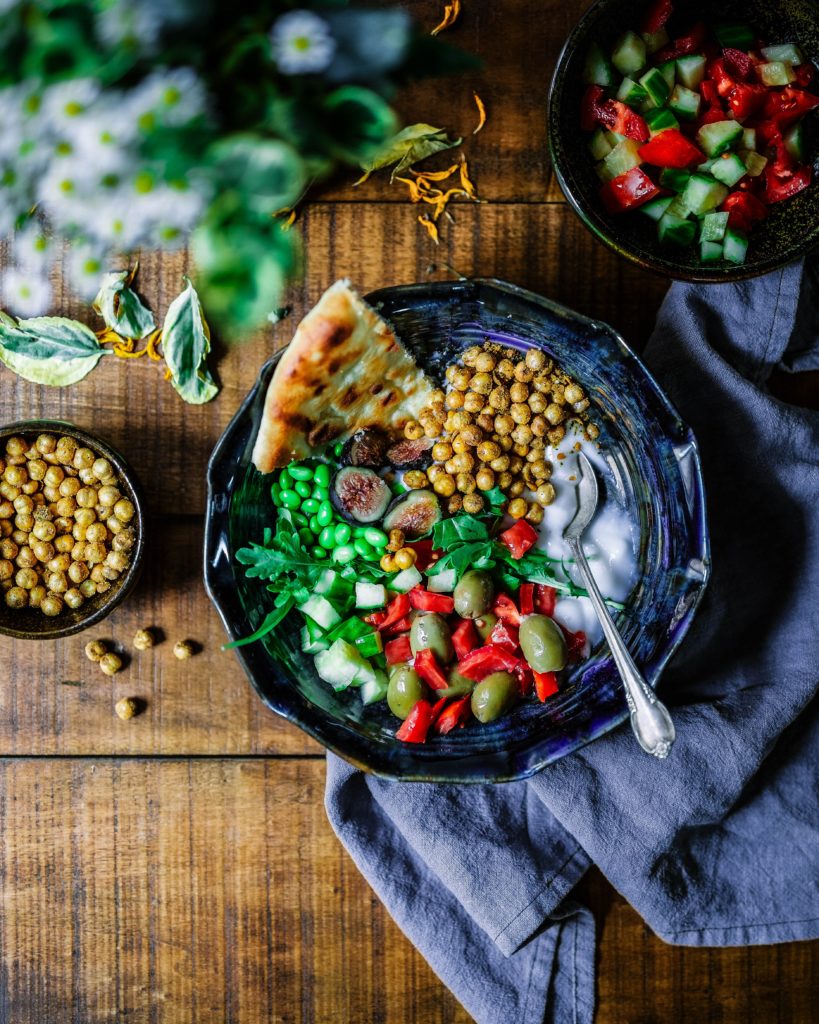
Plant based meat is taking off in Australia with supermarkets, fast food chains and restaurants coming on board. Demand has soared as consumers add plant-based protein to their weekly diet options. Not only sought after by vegetarians and vegans but meat eaters who want to cut down on meat are buying these protein alternatives.
An important motivator for many people trying to move towards plant-based foods, is to reduce animal abuse and environmental damage from livestock farming. Climate change anxieties, vegan activists and healthy eating means Australians are turning to meatless alternatives in large numbers. Plant products that taste and behave like meat are increasingly making their way onto the plates of consumers.
1. Meat Free Lifestyles
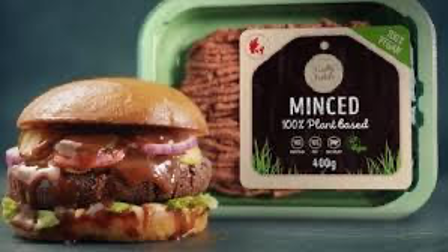
In Australia nearly every meat consumer has an agricultural degree in their knowledge of meat. They pride themselves on comparing meat prices per kilogram and which butcher, or supermarket sells good cuts of meat. For the meat-eating elite their knowledge of the history of farmed meats is important. They pay a premium for meat with a healthy and ethical origin. Yet on the flip side thousands of customers will still order a burger from a fast food outlet which are made from less moral values and content.
Now there is a growing army of people either for nutritional or ethical reasons, are choosing alternative plant-based meats. The trend in vegetarian eating continues to grow with 2.5 million people (12.1% of the population) in Australia, live a meat free life according to Roy Morgan Research making it one of the biggest food trends of 2018. The data shows a continued growth in people choosing more sustainable and kinder meals. This great news reflects the exciting shift towards plant-based eating across Australia with Melbourne and Sydney leading the change in meat free lifestyles.
2. What is plant based “meat” made of?
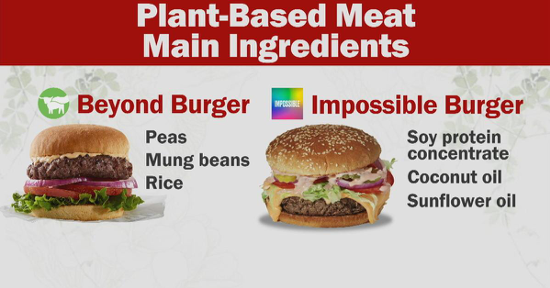
Plant-based meat does not come from a cow or pig, it is usually made from extracted plant protein (either soy or pea protein) or whey protein, spices and binding ingredients. These “meats” are like real meat in calories but have more fibre and less cholesterol.
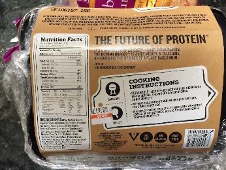
All plant-based meat alternatives are heavily processed with up to 21 different ingredients. Coles sell Beyond Burger which includes pea protein, canola oil, coconut oil, rice protein, natural flavours, cocoa butter, mung bean protein, potato starch, beet juice and pomegranate fruit powder to name but a few. Impossible Burger uses genetically modified soy protein rather than pea protein and has as its characteristic of being able to “bleed” which comes from the soy leghemoglobin that is made from genetically engineered yeast. A Queensland entrepreneur together with Fable chief executive Michael Fox and his team have created a shiitake mushroom-based product which is minimally processed and has the same taste and texture of pulled pork and beef brisket.
3. Why are meat eaters choosing plant-based products?
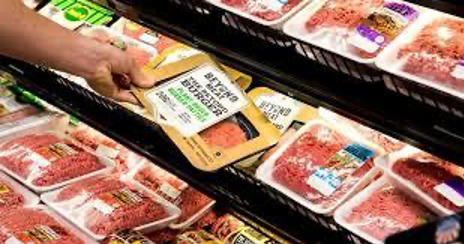
As there is no reason for carnivores to go to the vegetarian section in the supermarket then marketing has realized that if they see the plant-based alternative alongside what they would always choose, they may give it a try. They are seemingly just as popular with meat eaters as they are with vegans and vegetarians. Plant-based meat can now be found on supermarket shelves, in markets and restaurants menus throughout Australia.
Many people are diligently reducing their meat intake particularly red meat so placing plant-based versions of well-known products where they are likely to find them could interest. The stronger demand for plant-based products and the belief that the quality of these products is equivalent to the meat-based options is again a reason for the supermarkets to have them close by the meat versions.
4. Where to buy plant-based products in Australia
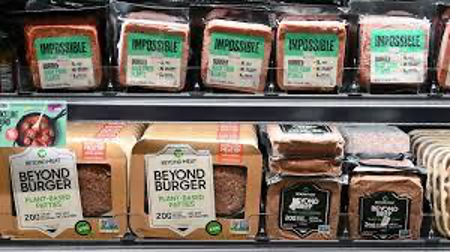
The non-meat-eating elite are getting excited at the growing range of “meat isn’t meat” plant-based meat alternatives available in the fridges at Coles and Woolworths. IGA also sell Beyond Burger across their stores. As they are observing that an increasing number of customers are looking to include plant-based alternatives to their weekly diets, the range is expanding. Sausages, meat patties (burgers), chicken, duck, bacon and fish are available to buy which are not made from meat. There are about 14 companies in Australia producing plant-based meat alternatives. While veggie burgers have been around for a long-time, alternative meats like those from Impossible Foods and Beyond Meat made from plants are now normal to see in supermarkets.
As you would expect, companies that supply plant-based products are also on the front foot for sustainable packaging. One of the fore runners is Funky Foods from Denmark who sell mince to Woolworths that is 100% plant-based and package it from at least 50% recycled plastic.
5. Fast food outlets which offer plant-based alternatives
It is Fast food chains are now offering plant-based meat alternatives including beef and chicken meat substitutes.

Domino’s Since launching their plant-based beef pizza range, including beef and onion, beef loaded burger and beef taco fiesta. Domino’s have added the plant-based Hawaiian, ham and cheese with sweet pineapple, supreme and pepperoni pizzas.
https://www.dominos.com.au/menu/plant-based-beef-range
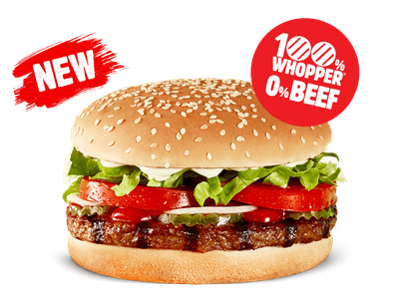
Hungry Jacks have rolled out fully plant-based burger and is served with plant-based mayonnaise and non-dairy vegan cheese. This so-called Rebel Whopper is targeted at those who eat meat but want to eat less of it. It is advertised as a cruelty free alternative to traditional meat.
https://www.youtube.com/watch?v=fBpMnx8Xp-Q
Hungry Jack is noticing that a growing number of flexitarians (people whose don’t completely cut meat out of their diet) welcome this plant-based option.
https://www.hungryjacks.com.au/
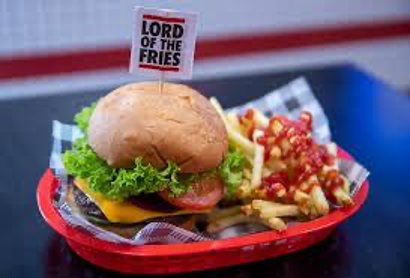
Lord of the Fries. Everything on the Lord of the Fries menu is vegan. They believer that plant-based alternatives will form a huge part of the future of burgers and the menu includes Beyond Burgers and Beyond Sausage which taste like beef.
Mad Mex is meeting the growing trend in Australia for plant-based food. The 100% Not Chicken range which is plant-based soy protein which had a texture and taste of chicken but is completely vegan/vegetarian/gluten free. The range includes quesadillas, burritos and tacos.
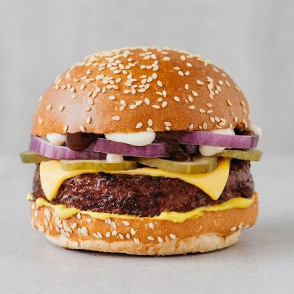
Ribs & Burgers have long offered vegetarian options like the School Cheeseburger made from Beyond Meat. Presently they are offering the benefits of their new plant based Beyond Old School Burger and the Beyond Original Burger with the taste and texture of meat.
https://ribsandburgers.com/au/
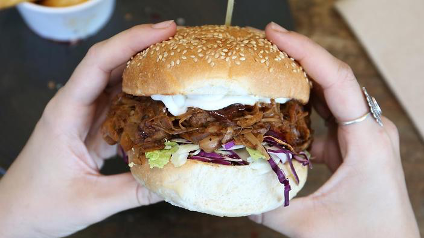
Soul Burger believe that plants are the future meat, so their menu is filled with plant based chicken and beef burgers as well as having a pulled “pork” burger made from BBQ pulled jackfruit – a species of tree in the fig, breadfruit and mulberry family.
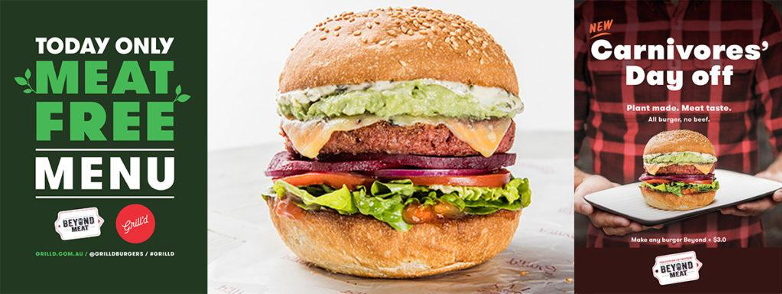
Grill’d are all about fresh healthy burgers and uses Beyond Meat burgers for its meat alternative burger range. They have many plant-based options perfect for vegans, vegetarians or those just wanting a day off meat.
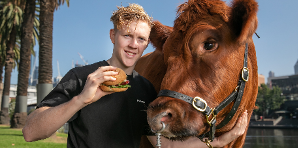
6. There’s a science to getting a meaty taste from plants
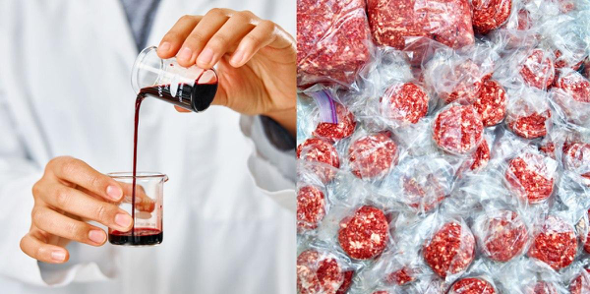
Making a burger out of plants which will appeal to meat eaters, the product must have the texture and flavour of meat is certainly a science. Known as sculptures food the plant-based meat alternatives comprise of different ratios of plant proteins combined from varying sources of carbohydrates. Food scientists have needed to study the interactions of the ingredients at a molecular level and have engineered carbohydrates and proteins to interact in different ways to form different textures. On analyzing these textures from different processing techniques, they have been able to develop a range of different meat alternatives with a suitable texture structure ranging from soft to course to gristly.
Whilst a meaty taste is not the main aim for a vegetarian or vegan, if you are needing to sneak it into a partner or child’s diet it is important that it looks smells and tastes like the real thing. Having confidence that the product is nutritious with extra vitamins and minerals, omega-3 oils and pre-biotic fibres for a healthy gut, is a selling point.
7. More sustainable than meat
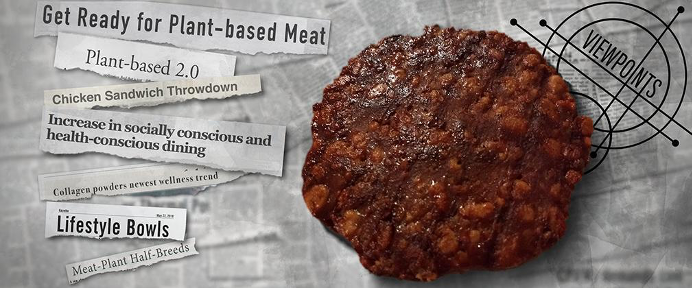
As the global protein demand is expected to grow, all protein producers whether they be cattle farmers or plant growers will be in demand.
The commercial food industry has been influenced by the environmental activists who back meat alternatives sold to consumers. Sustainable diets have long become the focus of environmental groups as the current state of the meat market industry creates negative impacts on the climate. Reducing the dependence on intensive factory farming to meet the unsustainable demand for cheaper protein.
Current research is recommending that if more people adopt a plant-based diet this will promote sustainability because they use many fewer natural resources and are less taxing on the environment. Natural non-renewable resources are declining, and environmental degradation is rapidly increasing.
8. Do plant-based meat products help more animals?
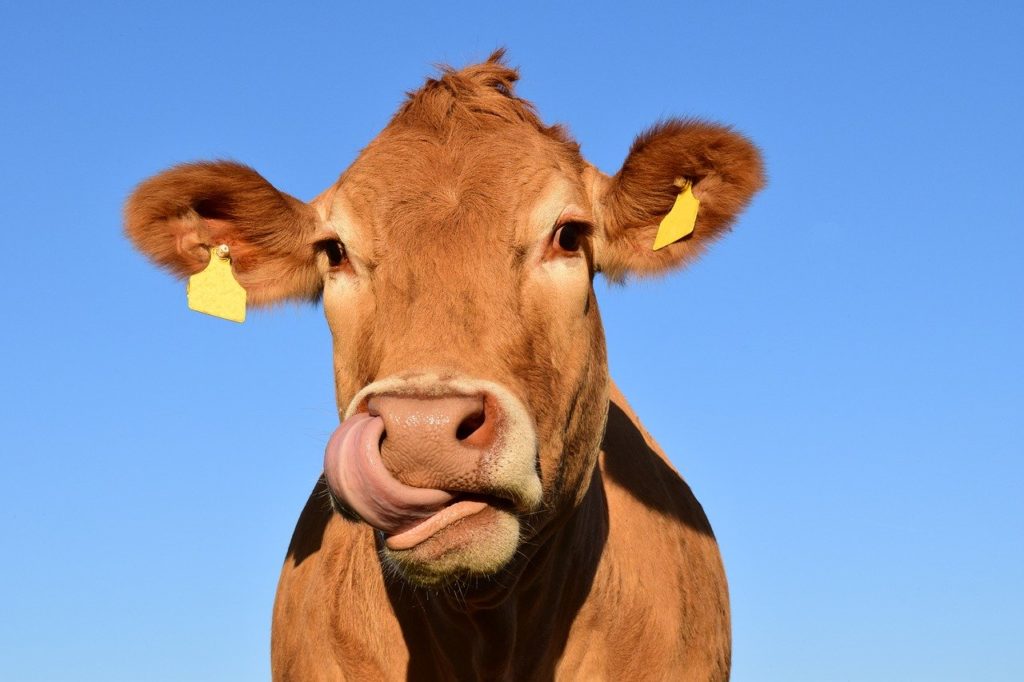
Putting a plant-based product in the meat section is likely to give more sales and ultimately spare more animals from being raised and killed for meat. Animal lovers who support meat-free products in the meat section and the supermarkets for backing this is an important step to decrease the number of animals slaughtered and the world’s dependence on intensive factory farming which is an unsustainable demand for cheap protein.
Changing land use from meat production will benefit lands recovery from resource extraction. Many believe that meat, especially beef is a major contributor to the greenhouse gases and deforestation of land for cattle grazing is adding to global warming.
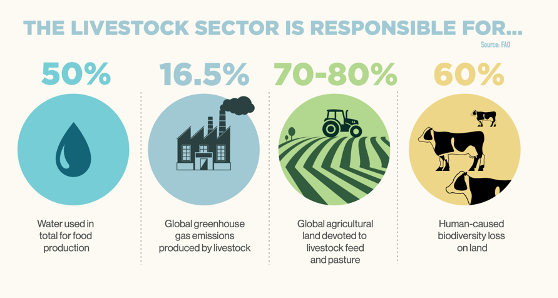
Statistics by the Changing Markets Foundation
Dedicating some of this land to plant-based foods would reduce the amount of crop land required to feed the planets’ population and allow farmers to grow the crops needed to regenerate the landscapes.
9. The fake meat debates
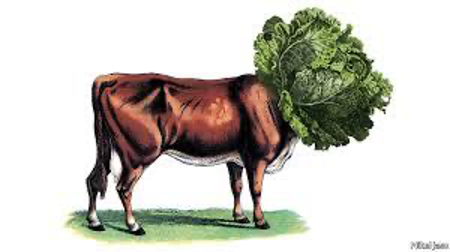
Australia is one of the biggest meat-eating countries per-capita in the world with beef production and with Aussies loving their real meat there is a forceful debate of the two questions.
- Should fake meat be called meat?
- Should fake meat products be stocked in the supermarket’s meat section?
The word “meat” means ‘flesh off an animal carcass’. So rightly so, government laws on labelling of all plant-based products needs to be accurate. Consumers can then be confident in making informed decisions about what they are buying at the checkout. This is especially important when plant-based products are found in the meat sections of supermarkets and reserve the term meat for products of animal origin especially when plant-based products are designed to look, feel and taste like real meat.
10. How expensive are plant-based products?
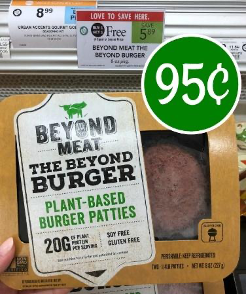
Plant-based meat costs about double that of beef and around four times more expensive than chicken, pork or turkey.
Vegans and Vegetarians are willing to pay the premium price and it has not deterred consumers from putting plant-based meat into their shopping trolleys showing that there is indeed a demand for meat substitutes. They know that seeds, nuts, legumes, beans and tofu as alternatives to animal foods boost dietary variety and are a valuable, affordable source of protein and have other nutrients found in beef. Choosing plant-based meat products which contain many of these is a cost-effective way to balance their diet.
It is likely that prices of some plant-based manufacturers, like Beyond Meat, may decrease their prices once they achieve enough market penetration and are able to optimise raw materials costs. The improvement in production efficiency will also help prices to become more affordable for consumers.
